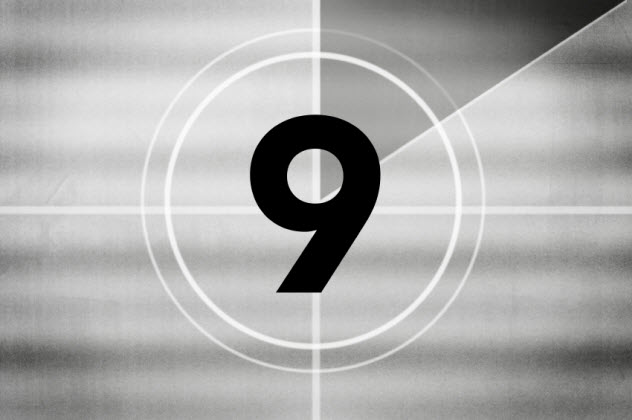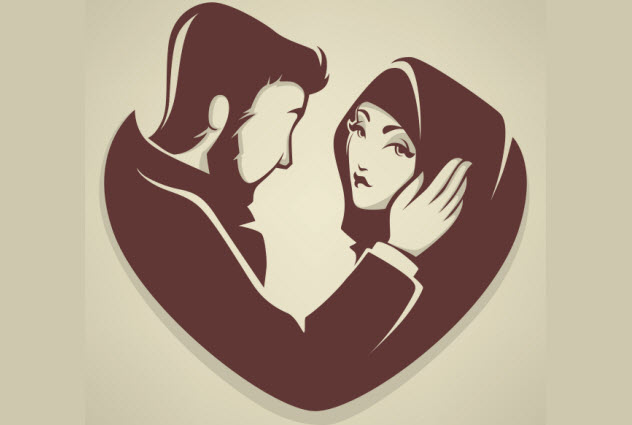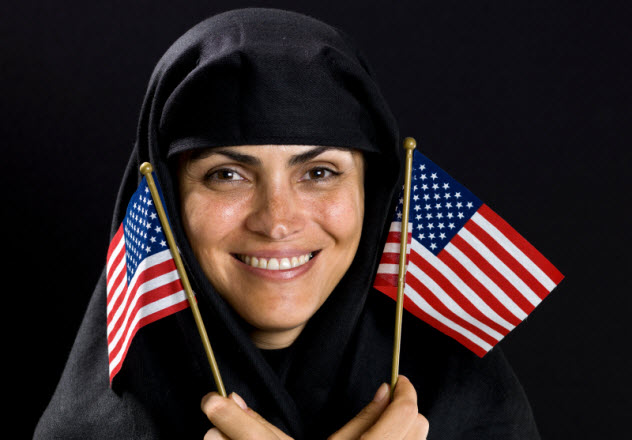 Politics
Politics  Politics
Politics  Miscellaneous
Miscellaneous 10 Things You May Not Know about the Fourth of July
 History
History 10 Shocking and Gruesome Founding Father Facts They Don’t Teach in School
 Crime
Crime The Ten Most Vicious Los Angeles Killers
 Miscellaneous
Miscellaneous 10 Indispensable Corporations the World Cannot Afford to Lose
 Animals
Animals 10 Unusual Wolves That Made The News
 Mysteries
Mysteries 10 Bizarre, Little-Known Phenomena
 Music
Music 10 Musicians Who Changed How Everyone Plays Their Instruments
 Humans
Humans 10 Inventors Who Died Awful Deaths in Their Own Creations
 Animals
Animals 10 Ways Animals Use Deception to Survive
 Politics
Politics 10 Lesser-Known “First and Only” Facts about U.S. Presidents
 Miscellaneous
Miscellaneous 10 Things You May Not Know about the Fourth of July
 History
History 10 Shocking and Gruesome Founding Father Facts They Don’t Teach in School
Who's Behind Listverse?

Jamie Frater
Head Editor
Jamie founded Listverse due to an insatiable desire to share fascinating, obscure, and bizarre facts. He has been a guest speaker on numerous national radio and television stations and is a five time published author.
More About Us Crime
Crime The Ten Most Vicious Los Angeles Killers
 Miscellaneous
Miscellaneous 10 Indispensable Corporations the World Cannot Afford to Lose
 Animals
Animals 10 Unusual Wolves That Made The News
 Mysteries
Mysteries 10 Bizarre, Little-Known Phenomena
 Music
Music 10 Musicians Who Changed How Everyone Plays Their Instruments
 Humans
Humans 10 Inventors Who Died Awful Deaths in Their Own Creations
 Animals
Animals 10 Ways Animals Use Deception to Survive
10 Surprising Facts About Iranian Culture
Iran’s laws closely follow edicts given by strict Muslim clerics who took over the country in 1979. However, before the Shah was removed from power, Iranian culture was quite progressive and Westernized.
Many Iranians who enjoyed considerable freedoms before 1979 never gave up their desire for Western culture and still try to enjoy it behind closed doors. For most of us who perceive Iranians as radical or completely devout, the reality is actually quite shocking.
10 Iranians Consume An Enormous Amount Of Alcohol

Despite an official ban on alcohol in Iran, 60–80 million liters of alcoholic beverages are smuggled into the country every year. The official punishment for consuming alcohol in Iran is 80 lashes, a barbaric punishment that millions of citizens risk every year just so they can drink. These draconian laws were first put into place in 1979 when the shah was overthrown, and Ayatollah Ruhollah Khomeini came to power.
In Iran, alcohol is an industry that grosses around $700 million dollars per year. In addition to smuggled alcohol, there is a huge domestic industry that produces alcohol illicitly.
Many of those who drink in Iran also drive drunk. In 2012, 26 percent of Tehran drivers were drunk when given alcohol tests during the one-month period from April 20 to May 20.
The number of alcohol abusers in Iran is stunning. According to the World Health Organization, the number of people who drink more than 35 liters (9 gal) of alcohol a year is enough to rank Iran 19th in the world—ahead of Russia, Germany, Britain, and even the US.
Alcohol is especially popular with young people, who see it as a way to escape their highly restricted lives. For years, Iranian authorities refused to do anything about their country’s drinking problem and tried to cover it up instead. As a result, the problem became worse because many alcoholics couldn’t find treatment. In 2015, though, Iran permitted the opening of 150 new treatment centers to help deal with the problem.
9 ‘Rich Kids Of Tehran’
For those who don’t know about the “Rich Kids of Instagram,” it’s a place where wealthy children show off their ostentatious lifestyles on Instagram. One spin-off that’s raising eyebrows is the “Rich Kids of Tehran,” in which wealthy offspring in Iran’s capital show how they can lead lifestyles as extravagant as those of their Western counterparts. However, unlike Western lifestyles, the vast majority of what’s shown in Iran is highly illegal.
The “Rich Kids of Tehran” have so far escaped punishment. In the photographs, they are shown drinking expensive champagne and partying with bikini-clad girls. Both drinking and immodesty are crimes in Iran. They drive expensive sports cars and live the high life just like some kids in the West.
To get away with this, they place a filter on their Instagram accounts. A VPN is required to access them. One person explained that 80 percent of those who post content to the “Rich Kids of Tehran” are children of the ruling elite.
However, these are not the children of the traditional aristocracy, who are more discreet with their wealth. Instead, they are the children of the nouveau riche, who only gained their wealth since attaining power.
After two luxury car crashes in which one of the “rich kids” was at the wheel, the Ayatollah Ali Khamenei denounced their generation by saying they were “intoxicated by their money.” Despite this, no action was taken, and the “Rich Kids of Tehran” continue to flaunt their lifestyles.
8 Bootleg Western Films Are Enormously Popular

Before the Ayatollah Khomeini came to power in 1979, Iranians loved American films. Afterward, all American films were banned because the ayatollah said that they glorified the Western lifestyle. The Iranians still wanted to watch American films, but their only option was to smuggle bootleg copies into the country and view them clandestinely.
Copies of American television shows, poor-quality films, and Betamax and VHS tapes became highly prized. However, the business was dangerous. “Video man” Bijan was given 100 lashes and fined $900, the equivalent of one year’s income for most middle-class families, when he was found to be selling bootleg videos.
There was a bit of truth in what the ayatollah said about Western films. People did imitate what they saw on their screens. When the movie Top Gun became popular in Iran, Ray-Ban sunglasses from the film became enormously popular. Men also started imitating Tom Cruise’s hairstyle, which the authorities tried to combat by forcing men to shave their heads. But with the huge number of people following these Western trends, the authorities stopped enforcing the laws against them.
After VHS went out of fashion, DVDs took their place. Although Iran is more open to Western films in the 21st century, many are still banned. One banned film is Argo, which portrays some of the events of the 1979 Iranian hostage crisis. Ironically, hundreds of thousands of copies of the film have been sold in Iran, making it one of the country’s most popular bootleg films.
7 More Young People Are Losing Their Virginity Before Marriage

In most Western countries, the idea of staying a virgin until marriage is relegated to an ever-shrinking evangelical minority. But in Iran, it’s the law. Abortion and sex outside of marriage are forbidden under Islamic law, although proof of virginity is not required for marriage. Despite this, many men want their future spouses to provide “virginity certificates.”
According to a study of Iranian men between the ages of 19 and 29, over one-fourth of them have had sex outside of marriage. It mainly follows the general trend throughout the rest of the world: People are delaying marriage but are having sexual encounters anyway.
Economically, marriage isn’t feasible for many young people in Iran. In recent years, high inflation, unemployment, and housing shortages have all kept people from getting married as they try to get established. To combat this trend, a £720 million “Reza love fund”—a reference to one of Shia Islam’s 12 imams—was established to provide marriage loans to encourage people to get married sooner.
Another reason for these sex and marriage trends in Iran is the increase in feminism. Although feminism is generally frowned upon, young women have taken to it and are often more interested in working on a career than finding a husband.
In the past, the sheets from the marriage bed were used as proof of virginity. However, there is now an option for women who have lost their virginity before marriage. Some private clinics offer a surgery called a hymenoplasty, in which a woman’s hymen is reattached as a way of “proving” her virginity.
As cruel as this sounds, it is a common procedure that families force on girls to conceal their “impurity” from their future husbands. There is a double standard, though. Most men feel that virginity is unimportant for men but want it in their wives.
6 There Is A Loophole Around Sex Before Marriage
In Iran, there is a legal way to have a sexual relationship without getting married. Temporary “pleasure marriages” called Mut’ah marriages are allowed under Islamic law. They are precisely for the purpose of having sexual relationships without societal and religious consequences. They can last for months, weeks, days, or even hours, depending on what you decide.
In Iran, Mut’ahs are incredibly popular among young people and are comparable to dating in the Western world. In Iran, casual dating is not permitted, but having a Mut’ah allows you to get around this. It is advocated by most government officials, including former Iranian President Hashemi Rafsanjani. In 1990, he said that temporary marriages were a way of getting around “Western promiscuity” and avoiding sexual diseases.
Others claim that temporary marriages devalue those involved. As one young person wrote to a newspaper: “I am 23 years old. If I temporarily marry a young woman for three years and then divorce her, would anyone be willing to marry her?”
Virginity is still important to future husbands, so a temporary marriage might hurt a woman’s chances in the future. However, losing one’s virginity in a temporary marriage is not the same as in an unmarried relationship. It is considered part of the marriage and therefore approved. As unusual as this seems to people in the West, this is a part of life for many couples in Iran.
5 Video Games Are Highly Popular And Used As Tools By The Government

Video games in Iran are similar to those played in America. However, while gamers in America play for fun, Iranians use video games as part of a “soft” cultural war. With the influx of Western pop culture, the Iranian government has been trying to use video games to inspire a new generation of Iranians. An example would be the government-funded game that explains the fatwa against author Salman Rushdie. It’s called The Stressful Life of Salman Rushdie and Implementation of his Verdict.
An American video game, Prince of Persia, caused developers in Iran to create Quest of Persia, which subsequently became the most popular video game series in their country. It has received acclaim outside Iran for its historical accuracy and beautiful imagery. In fact, most Iranian video games are designed as medieval sword-and-sandal epics because of the success of Quest of Persia.
Unless they are already proven commodities, video games beyond sword-and-sandal themes are a tough sell because of the poor economy. Other Iranian video games are first-person shooter games developed as propaganda. For example, Special Operation 85: Hostage Rescue has the player rescue Iranian scientists from Israeli and American forces.
As with movie bootlegging, American bootleg video games are popular with dedicated Iranian gamers who have the money to spend on them.
4 Human Trafficking Is A Serious Problem

Since 2006, the Islamic Republic of Iran has been given the lowest rating possible for handling human trafficking. The number of teenage girls trafficked in Tehran is somewhere between 35,000–50,000. They are forced to work on the streets, in sweatshops, and in any other operations that the traffickers run.
In fact, the problem is so bad that the US State Department has said that Iran is a “presumed source, transit, and destination country for men, women, and children subjected to sex trafficking and forced labor.” That’s a fancy way of calling Iran a major supplier and procurer of human slaves.
According to Iran’s constitution, human trafficking and forced labor is prohibited. But that hasn’t stopped powerful people from doing it anyway, especially to the most vulnerable people in the country. Migrants and others from outside the country are kidnapped and trafficked as far as Europe.
Due to the volatile nature of many Middle Eastern countries, migrants often go to Iran for work because Iran is relatively stable when compared to more violent countries like Afghanistan or Syria. However, once the migrants arrive, they may be threatened into forced labor situations without pay or even debt bondage, in which they have to work until all money from a loan or other obligation is repaid to their employer.
According to reports by human rights organizations, the Iranian government does nothing to stop the rampant abuses. Since the issue was first brought up in 2004, Iran has made no effort to prosecute criminal organizations that traffic humans. Although this can be partially explained by corruption, there have also been rumors that human trafficking extends into Iran’s religious communities, which exert great influence over the government.
Even if a female victim were to take her violators to court, a woman’s testimony is worth only half that of a man’s. If the woman was subjected to sexual abuse, she would be guilty of adultery and could face the death penalty.
3 Most Iranians Have A Favorable View Of The West

When Westerners think about Iran, they may envision former President Mahmoud Ahmadinejad spewing hatred against America and Israel or images of Iranians burning American and Israeli flags on the streets. But these perceptions are based on a small, extreme segment of Iran’s population. In fact, most Iranians have a positive view of the West, especially America. Approximately 51 percent of polled Iranians say that they like America.
In general, Iranians have a more positive view of the US than any other Middle Eastern country. A full two-thirds of Iran’s citizens believe that diplomatic ties should be restored with America. Interestingly, though, only 8 percent of Iranians approve of US leaders.
Still, in a country where almost every form of communication is monitored, it is believed that Western approval might actually be higher than the polls show. Although Iran’s leaders call America the “Great Satan,” most Iranians love what they see as the American ideal—prosperity and freedom.
2 Many Ordinary Iranians Don’t Approve Of Their Government
In Iran, it is still a serious crime to criticize the government. Even so, many experts note that Iranian citizens have become increasingly dissatisfied with their government. To get around these problems, Iranians have to be subtle when talking negatively about the government.
Iranians who leave their homeland are still leery of voicing negative opinions because they know that Iranian intelligence follows former citizens. Those who have been brave enough to talk say that many citizens don’t have faith in the ayatollah or the government that controls them.
As shown above, a YouTube video called “2+2=5” was created by former Iranians and shows the way many people in the country feel about their repressive government. In the video, students are forced to write that 2+2=5. When one of them disagrees, he is publicly killed. But this causes another student to disagree and write in his notebook that 2+2=4.
Although public criticism of the country is prohibited, many Iranians take the risk of saying exactly how they feel in private.
1 Iranian Young People Are Fighting For Change
About 60 percent of the Iranian population is under age 40, making the youth of Iran an influential force now and in the future. They have been inspired by Western ideals, and their morality has mostly been influenced by Western culture. If the younger people of Iran continue to think and behave as they do now, there might be a power shift in the future.
Rather than speak out against politics, many young Iranians dress and act against traditional rules. They want what most other young people want: good jobs and the right to have fun and live how they want. They like Western cultures and want the freedom to express themselves.
President Hassan Rouhani, who was elected in 2013 with a large youth majority, has often advocated leniency for Iran’s young people. Today, girls wear makeup and show more of their faces by pushing back their veils. In public, couples hold hands—an act which was once strictly forbidden—and listen to Western pop music.
Reformists are slowly gaining more traction because young people are flouting the country’s strict conventions. Although the Iranian government still cracks down on reform activists, small changes are seeping down from those in power, which provides hope for the future.
Gordon Gora is a struggling author who is desperately trying to make it. He is working on several projects, but until he finishes one, he will write for Listverse for his bread and butter. You can write him at [email protected].








